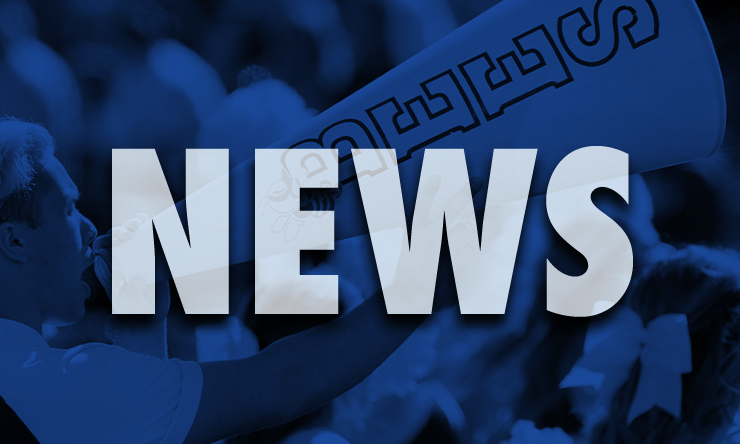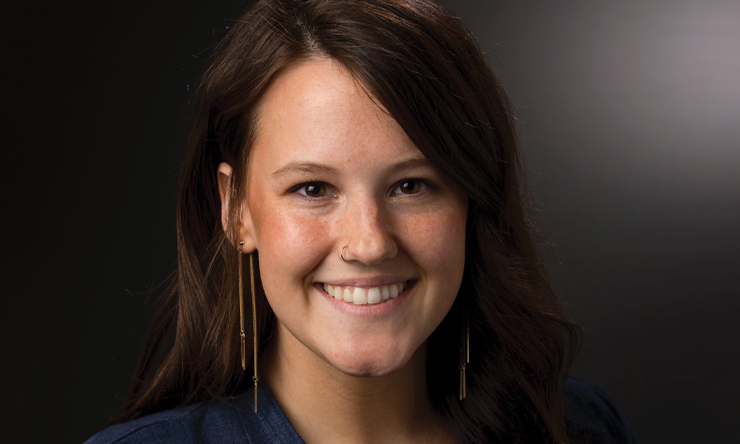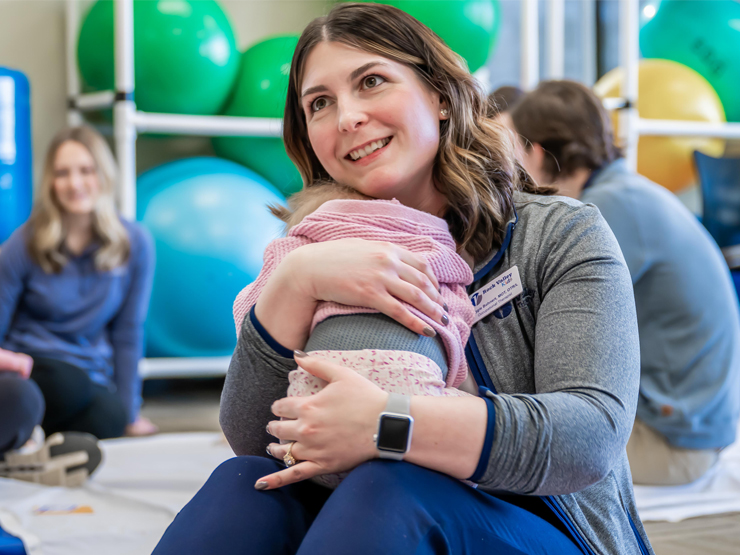There were two ways Matt Strub could have spent the summer before his senior year of college-far, far away from the confines of the cement brick buildings of academia, sleeping in, luxuriating by a pool and hanging out with friends. Or in an air-conditioned classroom conducting hours upon hours of research.
Strub chose the latter. But he still spent an entire summer with friends. And the pool? He got that too-in the form of a swampy marsh on a hot, humid day. Not exactly refreshing, but so worth it.
"You have to love research," quipped Strub, reflecting on his participation in the St. Ambrose University Undergraduate Summer Research Institute. "If you just want another thing to add to your résumé for medical school, then the institute is probably not the best way to spend your summer. But if you are still trying to decide which career path to pursue, this is a fantastic tool. If you love it, research might be for you. If you hate it, well, at least you know."
Luckily for Strub and the seven other students who took part in the summer institute-a first for the university-the experience is one they would repeat over and over again.
As he stares college graduation and the real world in the eyes, Matt Strub is finding himself quite reflective about his four years at St. Ambrose. Ambrose has been "all in the family" for him. An older sister and a half-a-dozen cousins attended the university, "so it was a natural place to start my college search years ago," he said.
And it wasn't just the proximity to his home in Dubuque, Iowa, or the small class sizes that made his college decision so easy. "It was the sciences. The biology faculty here are so committed to making Ambrose a top-tier program," Strub said. "The department is loaded with talent. It reminds me of a small school that makes a Cinderella run for the NCAA basketball championship during March Madness. You watch and wonder how such a small team can have so much talent."
But Strub hasn't been watching from the stands. He's been an active player all four years, honing not just a love for science, but also a passion for risk and discovery.
That passion blossomed this summer under the guidance of Bryon Ballantyne, PhD, associate professor of physical therapy; Jodi Prosise, PhD, assistant professor of industrial engineering; and Katie Trujillo, PhD, professor of psychology. Together they inaugurated the summer institute that allowed Strub and his counterparts to spend six weeks conducting research on two different topics.
"Our faculty brought the topics to the institute: how age and distractions affect people's physical balance, and utilizing neural signals for control of a prosthetic hand," explained Trujillo, who also serves as the associate dean of the College of Arts and Sciences. "These were topics of interest to us as faculty, and also areas we knew students would be interested in researching."
"Instead of having authoritative professors influencing our project, we had faculty who were more interested in guiding us in the right direction, letting us tackle the projects on our own," said Teresa Popp, a senior biology major. "Without research, we would be stuck in a ‘cut-it-open-to-see-how-it-works' type of questioning, rather than a ‘why-does-it-work' and ‘how-does-that-influence-other-things' type of questioning."
Popp worked with Strub, junior Robert McDonnell and other students on the balance project. Their first few days at the summer institute didn't just include getting to know one another-they immediately dove into hands-on work with "really expensive equipment," McDonnell said. He admits he was skeptical until his first day at the institute. It didn't hurt that the equipment they were using on the first day was "way cooler than a Wii."
"Research is one way to fight ignorance in the world, to not just accept what others tell you to be true," he said. "So many people have to take what others say at face value rather than actually having the background and expertise to back it up. There may be nothing more exhilarating than finding something new and meaningful."
The goal of the summer institute was not just to provide students with the experience of seeing a research project through from start to finish. It also sought to provide an opportunity for students to think and act like scientists. In addition to the balance and prosthetic projects, students located fingerprints on a plastic bag during a forensic demonstration with Jill Foster '09 of the Davenport Police Department, identified stars at St. Ambrose's Menke Observatory, and learned about chelonology-the study of turtles-at Nahant Marsh in the Mississippi backwaters near Credit Island Park in Davenport. The students quickly found out that capturing and tracking turtles was no easy task.
"We had waist-high waders on, and after an hour wading through the ponds still hadn't found a single turtle," Strub recalls. "We were wet and didn't exactly smell great. I think I managed to get about two gallons of water in each leg of my waders."
"It was quite hilarious," Trujillo added, still laughing about it months later.
The summer institute is but one of a number of university-wide research initiatives that have been championed by Ambrose faculty over the past few years. Sharing scholarly work with a larger audience not only propels the university forward, but also greatly enhances the overall academic experience for Ambrose students and faculty alike.
"If you don't share what you've done, whether it's creative work or historical work or scientific research, then it's far less meaningful," said Trujillo.
Last spring, the Undergraduate Scholars Conference celebrated its third year of presenting scholarly work by students in the College of Arts and Sciences to the campus community. Students in the exercise science program also gave poster presentations about their clinical experiences. And countless numbers of biology, occupational therapy, physical therapy, psychology and speech language pathology students have presented papers at regional and national conferences. A separate research program for first-year students entering Ambrose this fall gave a select number of new students a research foundation to build on as they navigate their four years at Ambrose. Next year, incoming students can apply to an honors program that will also be heavily rooted in research (see additional Scene story).
"These programs bring us just a little bit closer to our goal of being a leading Midwestern Catholic university," Trujillo adds. "I think a lot of us at Ambrose came upon teaching because it was something we did in graduate school. Opportunities like this are certainly great for the students, but also wonderful for faculty. It's a chance to share and continue our scholarship alongside our students."
The program also helps students affirm their desire to take the next step toward graduate or medical school, experiencing a rigorous academic study that sometimes illustrates that learning can be tedious and requires self-discipline.
"Graduate schools love to see that undergraduate students have struggled with their research and still want to pursue that career path," Strub said. "There were certainly moments we struggled."
And just because the summer has ended, it doesn't mean the research has concluded. Popp, junior Mallory Cross and senior Katelyn Stein are writing a paper on the balance research they conducted and will submit it to an undergraduate journal. Popp also began a year-long independent study with Matthew Halfhill, PhD, associate professor and chair of the biology department.
"I'm attacking a genetics-based study to develop a method that discovers the insertion location of the green florescent protein gene in Arabidopsis thaliana," she said with perfect Latin. "This semester I'm writing the proposal, and in the spring I'll grow numerous generations of various lines and compare their level of fluorescence to each other."
And what is she learning from the Arabidopsis? It goes far beyond the botany.
"Science takes patience, and a lot of trial and error," she admits. "The research doesn't always come out as you would expect it to, but no matter what the data says, you learn something."
Right now, that learning includes never giving up, and "always continuing to ask questions."
News
Share This Story



